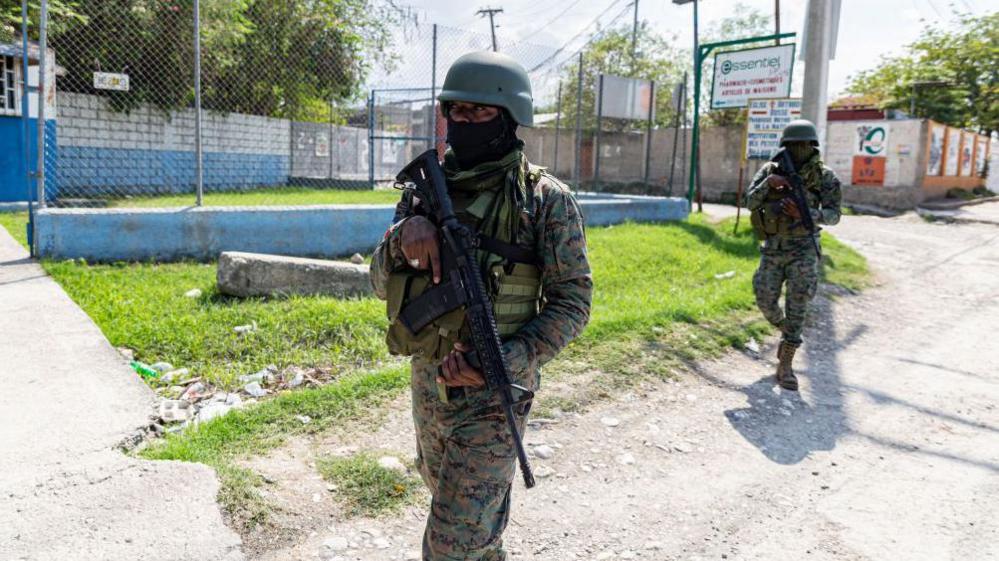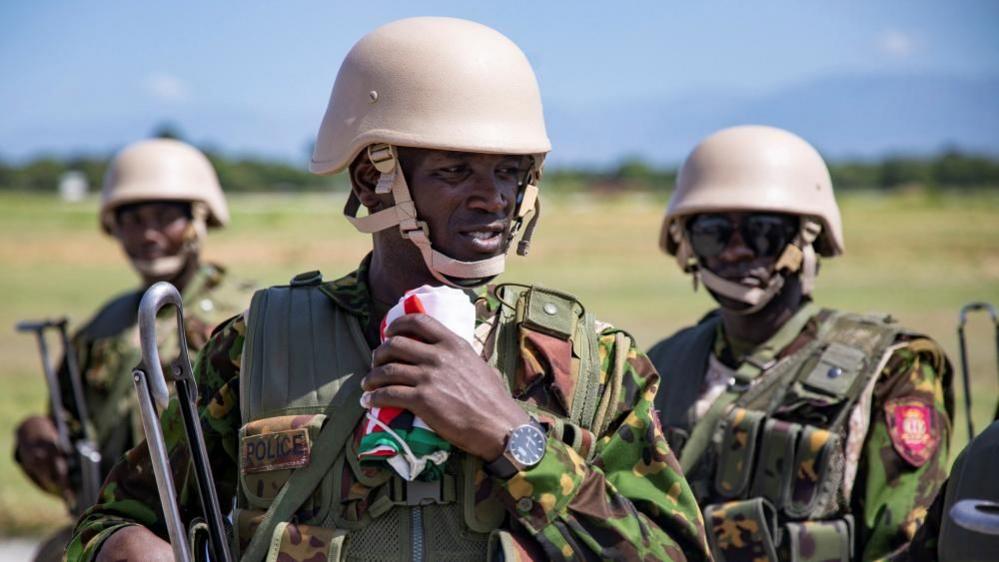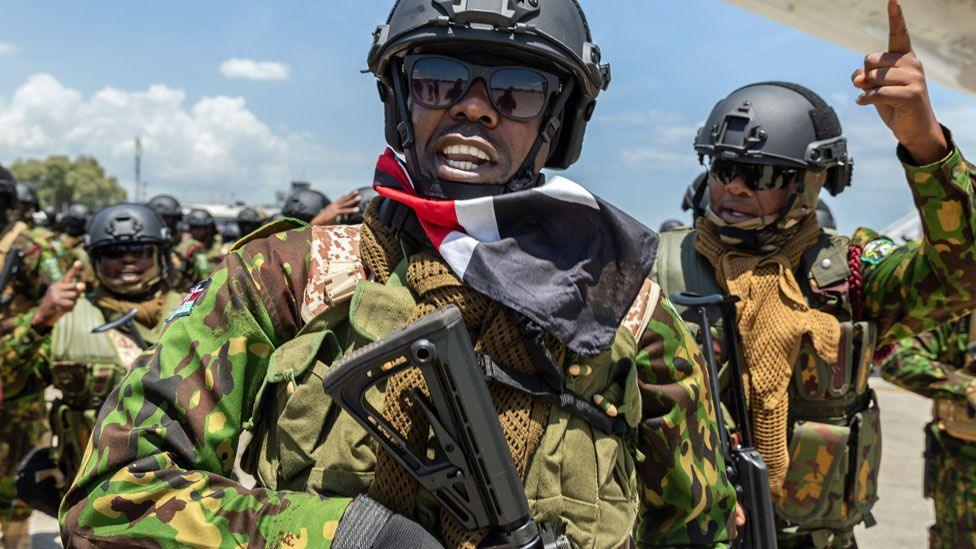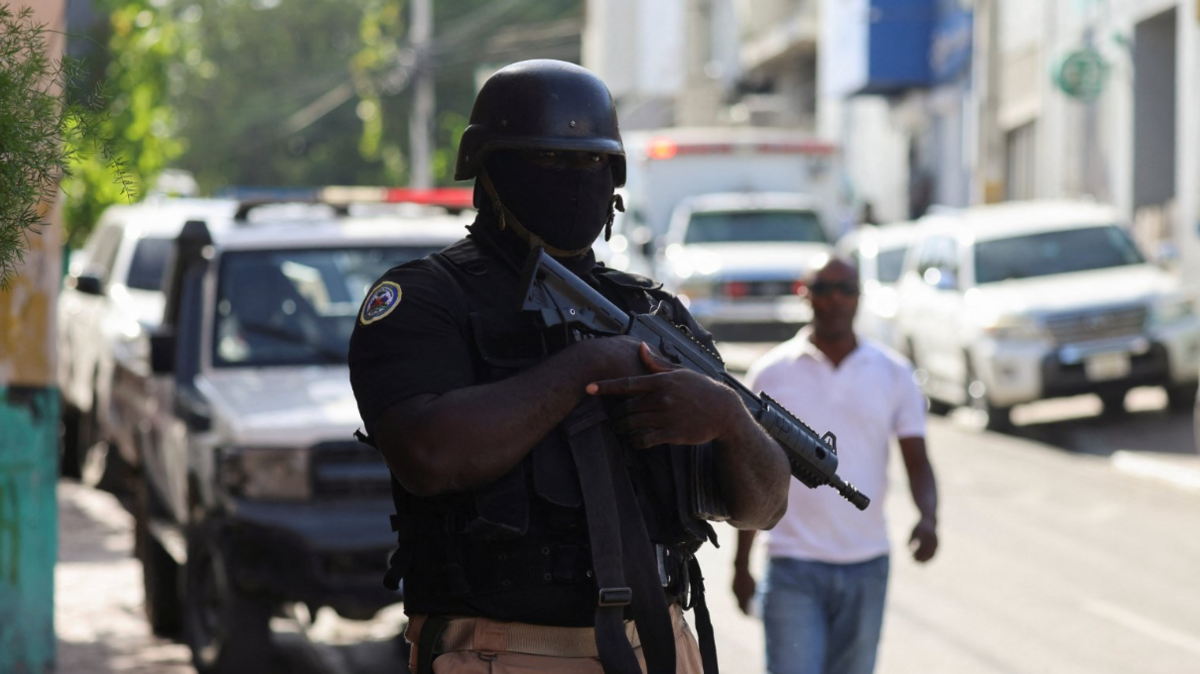Haiti expands state of emergency to whole country

Nearly 580,000 people have been internally displaced by conflict in Haiti, the UN says
- Published
The Haitian authorities have expanded a state of emergency to the whole country as the government battles violent gangs that have taken control of large parts of the capital - and are attempting to move into other regions.
The move comes as the US Secretary of State Antony Blinken prepares to visit the Caribbean nation, where he will meet Prime Minister Garry Conille to discuss “forthcoming steps in Haiti’s democratic transition”.
Mr Conille has been attempting to restore order since the new government was formed three months ago.
Nearly 580,000 people have been internally displaced by conflict, with close to five million facing severe hunger, the United Nations has said.
Mr Blinken's visit comes as more than a million people remain without electricity in the capital Port-au-Prince, after protesters stormed and vandalised a power plant.
The state electricity company said the incident happened on Monday, when a group of people attacked the compound to protest against frequent power cuts in previous days.
The US is the largest funder of a UN-backed security mission aimed at combating gang violence.
In March, armed gangs stormed Haiti’s two biggest prisons, freeing around 3,700 inmates.
The Ouest Department - a region including the nation's capital, Port-au-Prince - was originally put under a state of emergency on 3 March, after escalating violence gripped the capital.
In June and July, a group of 400 Kenyan police officers arrived in Haiti to help combat the violence, the first tranche of a UN-approved international force that will be made up of 2,500 officers from various countries.
- Published26 June 2024

- Published10 August 2024

- Published12 June 2024
